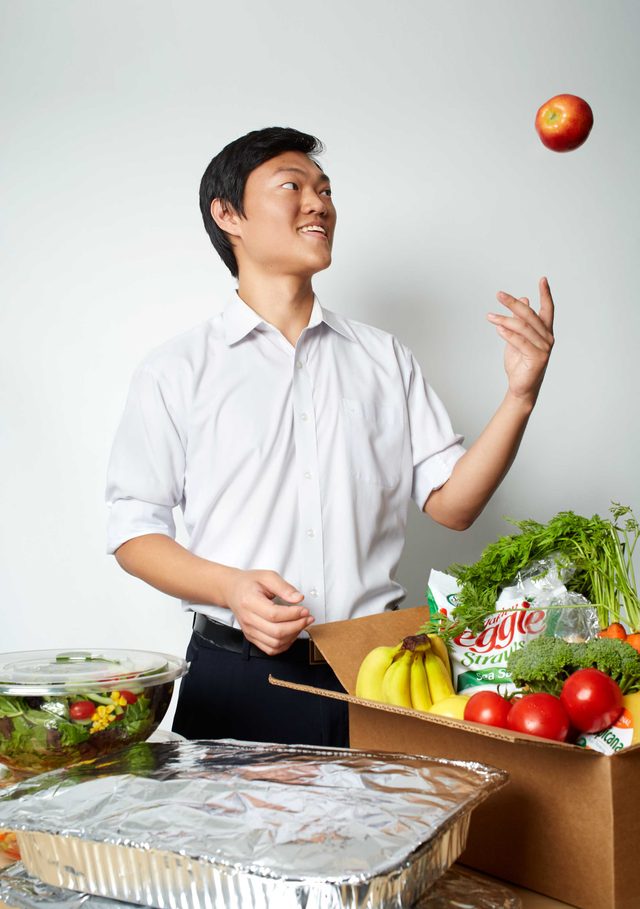Would You Leave a Six-Figure Job to Feed the Homeless? This 27-Year-Old Did.
Updated: Feb. 13, 2023
Robert Lee's idea is seemingly simple: Get restaurants to make better use of their leftovers.

As an elementary school student in New York City, Robert Lee would stare in disbelief at his classmates throwing away half-eaten sandwiches after lunch. His Korean immigrant parents had taught him and his older brother not to waste food. “They said it was bad karma,” says Robert, 27.
While studying finance and accounting at New York University, Robert remembered this lesson and joined Two Birds One Stone, a food-rescue club on campus that delivered, five days a week, uneaten pasta, vegetables, and other leftovers from the dining hall to nearby homeless shelters.
When Robert and fellow club member Louisa Chen entered a college entrepreneurship contest, they proposed a slightly different idea for a food-rescue nonprofit group: Their program wouldn’t have a donation minimum (meaning they would gladly pick up one bag of leftover bagels or a single pot of soup), would operate seven days a week, and would be staffed entirely by volunteers.
Their idea won the competition. With the $1,000 prize, they founded Rescuing Leftover Cuisine (RLC) in July 2013. In just the first few weeks, Robert’s team delivered a donation of enough spaghetti and meatballs to feed 20 people in line at a New York City homeless shelter that had run out of food. Learn more about the 13 things local food pantries wish you knew.
Robert, who had taken a job as an analyst at J.P. Morgan, devoted his spare time to creating a network of New York City restaurants, from mom-and-pop delis to large chains like Starbucks and Panera Bread, that agreed to donate food, and he enlisted volunteers to make food deliveries to homeless shelters. After RLC received national press attention, homeless shelters and soup kitchens in Portland, Oregon; Washington, DC; and other cities reached out to Robert for partnership advice. Two years after being founded, RLC had already distributed more than 250,000 pounds of food.
Only a year into his finance job, Robert gave up his six-figure salary to focus on RLC. “I compared one hour of impact at J.P. Morgan to one hour at RLC, and the difference was just tremendous,” he says. The organization now reaches 16 cities around the country.
“One shelter … told us that our donations allow them to provide entire dinners for more than 300 people, three nights a week,” Robert says. “Things like that make me glad I quit my job.” For more inspiring stories, read the 15 most heartwarming acts of kindness that happened in 2018.